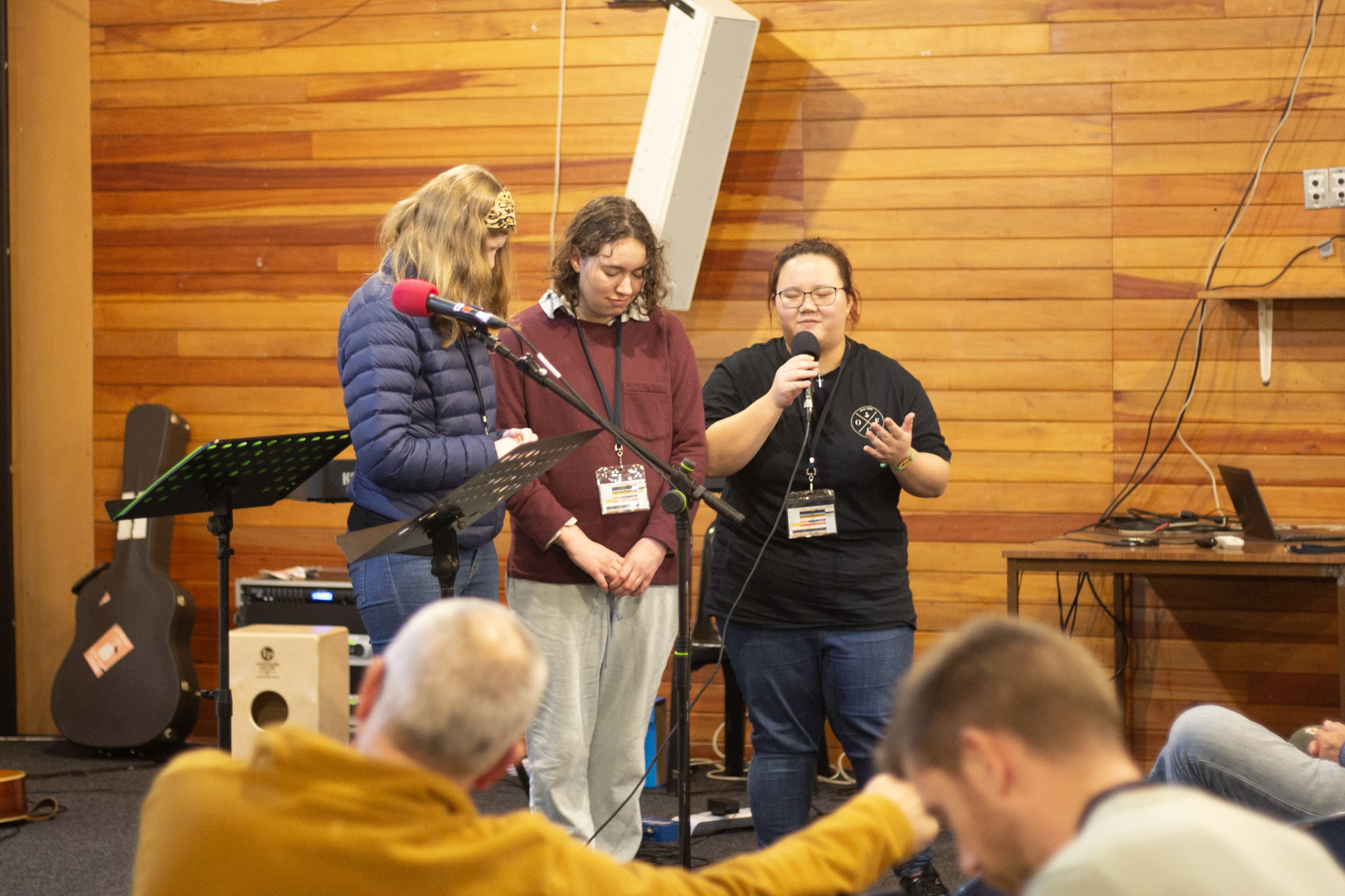An Army of the Ordinary
The God of the Extraordinary
National Director’s Report – Ben Carswell
‘We need to raise an army of the ordinary’.
These simple words brilliantly summarise the remarkable story of Sir Nicholas Winton, who was for many years at the centre of one of the most unknown and unheralded rescue stories of all time.
Nicholas Winton’s story had largely gone unnoticed by the world, but that all changed in 1988, when he was invited to the BBC television programme ‘That’s Life!’ and his story began to be told and recognised. This past year, Sir Anthony Hopkins played Winton in the feature film ‘One Life’, which told the remarkable true story of his life and particularly his efforts rescuing Jewish children from Nazi-occupied Czechoslovakia.
In 1938, Nicholas Winton, a young British stockbroker, visited Prague on holiday. Whilst there, he became involved in welfare work as he saw Jewish families at risk from the Nazis. For three weeks, based out of their hotel in Prague, Winton and several accomplices arranged for the rescue of Jewish children and evacuation to Britain, travelling across an increasingly fraught European continent.
Seeing an immense need, Winton responded to the call. He had a vision to save as many as he could, protecting and providing for their immediate need and long-term futures. Calling on the help of many others, remarkably, Winton ultimately found homes in Britain for 669 children, most of whose parents were later killed in the Auschwitz concentration camp.
Winton draws together ordinary men and women, to achieve his vision. Together with friends, they work alongside the Czechoslovak Refugee Committee and the British Committee for Refugees from Czechoslovakia to bring foreign volunteers together for his mission. To rescue the children, they need to raise funds, seek the permission of several governments for travel, provide practical resources to enable as many children as possible to be moved to the safety of Britain and then to source families and homes to take the children in and care for them. It truly is a case of ‘an army of the ordinary’ working together to achieve something quite incredible.
The vision of raising ‘an army of the ordinary’ to participate in an incredible rescue is one that resonates for TSCF. For more than 80 years, TSCF have sought to raise an army of ‘ordinary’ people to be part of God’s work, as students are witnesses for Jesus on the campuses of NZ. We’re nothing special, but like the Corinthians Paul describes, ‘not many were wise by human standards, not many were influential; not many were of noble birth. But God chose the foolish things of the world to shame the wise; God chose the weak things of the world to shame the strong. God chose the lowly things of this world and the despised things – and the things that are not – to nullify the things that are, so that no one may boast before Him.’ (1 Cor 1:26-29)
In fact, humanly speaking, we may feel and seem entirely ‘ordinary’. At times, we can feel discouraged by the relative weakness of our force, or overcome by the scale of the task, but under God are used extraordinarily to achieve His mission.
Time and again in Scripture, we read of God taking and using something that is quite ordinary and using it to accomplish His purposes. The stories of Jesus feeding the 5000 and 4000 are recorded by both Matthew and Mark in their Gospels. As we read their accounts of Jesus feeding hungry people, there’s much we can learn from the stories told.
In both situations, a large crowd gathers around Jesus. One is in a Jewish setting and the other amongst the Gentiles, but in both the crowd are hungry and have nothing to eat. Jesus’ response to the crowds is telling. He is far from ambivalent to their plight. He has compassion for the people because of their situation. With the 5000, Jesus asks His disciples to source food, which He then multiplies. Whilst with the 4000, the disciples, perhaps mischievously or maybe forgetfully ask, “Where in this remote place can anyone get enough bread to feed them?” The answer tells not so much ‘Where can we feed them?’ as ‘Who can feed them?’ In both stories, the story is all about God’s miraculous provision in the face of a bleak situation. The One who owns every animal in the forest and the cattle on a thousand hills (Psalm 50:10) could have taken matters into His own hands and made food from nothing. But instead, he takes the meagre resources of just a few loaves of bread and a few small fish and multiplies it for the masses. And in doing so, the people who were hungry, eat and are satisfied.
While God chooses to use ‘an army of the ordinary’ to help feed the masses, we are reminded that the main point really is about ‘a God of the extraordinary’ who takes our limited resources and multiplies them for His glory. Our God is not simply a God who provides, but a God of abundance. We worship and serve the God of plenty – the One who accomplishes far above and beyond what we ask or imagine.
As we look back on the past year, we recognise that God is at work even in what seems to be very ordinary or mundane. After the frustration of Festival One being cancelled due to heavy rain and flooding, we were delighted to be back in person on campuses connecting with new and returning students at Orientation weeks across the country. Whilst student numbers have been generally down, the level of interest and engagement of those who are around seems to be markedly higher.
Student camps and outreach events were back on the radar. It was good to be back doing the ‘bread and butter’ of student mission. It is so often in these ‘ordinary events’ that we see God do His extraordinary work. In Lincoln, The Well continues to grow in its identity and impact, as students understand more of what we are doing and join in with the community. It’s been thrilling to hear reports of students meeting regularly to study the Bible and pray together, as well as using The Well as a base to connect with students from the university.
We continue to use the Mark Drama to connect with students and creatively share Jesus from the pages of Scripture. Kim Shaw has ably led The Crossing, an initiative which help students think about Global Reach and consider their part in God’s global mission.
At times, it feels like our resources are scarcer than we would like. We would love to see our staff teams grow across the country, and we are particularly stretched in Wellington and the Manawatū. In both regions, we are looking for Team Leaders and staff to support the work. Elsewhere, some of the groups still feel the impact of the pandemic and are smaller in number than we would like. Sadly, this seems to have been a trend for many student clubs and societies, but thankfully is not true everywhere.
Our annual student conference, Summit was another highlight in the year. For various reasons, it is becoming increasingly challenging to get students to attend, but those who do frequently speak of the life-changing impact these gatherings have. We were delighted to have current IFES Vice Presidents, Cassells and Hazel Morrell speaking on the theme of Grace from the book of Galatians. It was also a real joy to reconnect with the global IFES family at the World Assembly held in Jakarta, Indonesia. It was great to take a team of students, staff and Board members, to listen and learn from our brothers and sisters around the world.
After many years praying for the work in Auckland, we’re excited to have seen the team grow. The arrival of Katie and Lance Knight, who have joined the Auckland team from InterVarsity Link in the USA, is a great example of partnership with our IFES family.
Our year started with the flooding at Festival One and finished with a significant flood in our national office in Wellington. Although it could have been much worse, the freak weather event meant a large amount disruption for our office support team in their vital work. Along with changes to the area around our office, this incident highlighted the need for us to seriously consider relocating our office elsewhere. We are actively seeking suitable premises that will enable us to support the wider work for the next season of ministry. We ask for your prayers that ‘the God of the extraordinary’ would provide just what we need in a miraculous way.
Winton’s story was largely unknown, until nearly 50 years after the event, when Winton’s wife found a detailed scrapbook in their attic, containing lists of the children, including their parents’ names and addresses of the families that took them in. He gave the scrapbook to Elisabeth Maxwell, a Holocaust researcher and wife of the media magnate, Robert Maxwell. From there, Winton was invited as a member of the audience of the BBC programme, ‘That’s Life!’, where his scrapbook was shown, and his achievements explained. During the show, in a memorable moment of television, the host introduced Winton to some of the children he had helped to rescue with whom he had lost connection. Winton was subsequently invited to a follow-up episode, where the host asked whether anybody in the audience was among the children who owed their lives to Winton, and if so, for them to stand. In an incredibly moving moment of television, more than two dozen people stand and applaud. The host then asked if anyone present was a child or grandchild of one of the children, and the rest of the audience stands.
We would love to see the work of student mission grow. Over the next five years, we are looking to God to help double the number of students attending and involved in TSCF activities, double our staff team and double our funding to resource this work. It seems a mammoth task for this ‘army of the ordinary’, but for ‘the God of the extraordinary’, all things are possible. When the Lord Jesus returns, we hope that there will be many who were saved through His work through TSCF, and many more saved through them. We cannot imagine the possibilities of what God can through obedient, willing acts of faith.
Our ‘army of the ordinary’ is far more than students, it’s also our supporters, local churches and our growing staff team, who join together to see His rescue mission on campus fully resourced. Thank you for playing your part in God’s extraordinary work and we invite you to join us as we look to Him to take what we are able to give Him to allow Him to work, multiply and satisfy for His glory.






